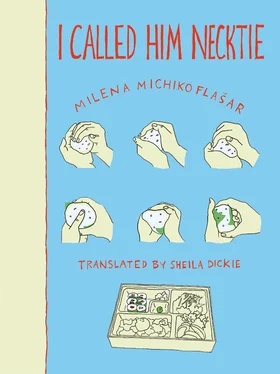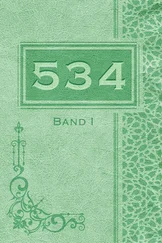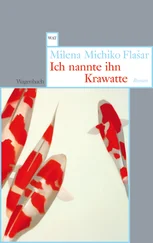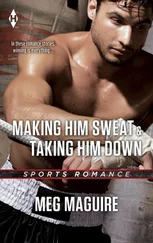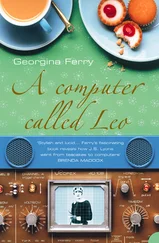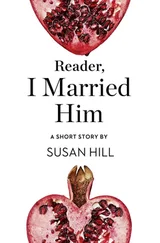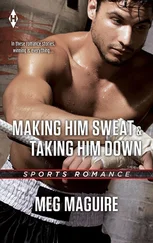96
And there it was again. The feeling of being a nobody, or less than nobody, a nothing. It was a subconscious feeling. It shackled me and said: Run! I tried, struggled to and fro, moved not a millimeter. I shook with the effort it had taken to get this far. After Yukiko’s death it was this shaking, a constant tremor just beneath my skin, which reminded me inwardly and outwardly that despite all the striving, despite all the battles I fought to be normal, I was somehow different — because of this.
I hid it as best I could. So that no one should notice I was hiding it. And if it couldn’t be hidden, then I was the one who laughed the loudest, pointed it out and said: How funny! Usually I kept my hands in my pockets. Whenever my name was called they began to shake. Had I been caught? Had they found out? I, who pretended to have seen nothing, was particularly anxious not to be seen. And who is more invisible than he who conforms? With my hands in my pockets I pretended to be someone, a person with a guileless expression. That was the pressure I was referring to. Not the tests, not the grades. The pressure consisted of having to act out my lack of expression. The struggle for credibility. The first space I retreated into was not my room in my parents’ house, but my smooth forehead. If the talk turned to Yukiko, the teachers mentioned her story, now and again, for the lesson it held, I buried my hands deeper still, walked, whistling casually, to the toilet, where I locked myself in and waited long minutes until the shaking had worn off. Taguchi, someone knocked on the door, what are you doing in there? I: You know what. Oh, ok, a snigger of recognition. Boy, you take a long time. I came out with a blank grin.
At home I avoided eating at the table with my parents, the trembling fork and trembling spoon beneath their gaze. So they probably didn’t notice, since I adopted certain strategies to force the shaking back down under my skin and to hold it hidden there until, alone once more, a relief, I let it reappear on the surface. I ate in my room more and more often. Neither Father nor Mother asked the reasons. You know how it is, they said, it’s a difficult age. Had they asked, I could have given them no better answer. Their understanding of my difficult age was the best excuse I could produce: Please excuse me, but I don’t feel like sitting with you. Please excuse me but I don’t care to explain why. Shaky stare. Of all people it was me whom I least wanted to observe.
97
But I saw myself.
I stood to the side and saw myself.
Wobbly camera.
I saw the impossible, the attempt to outwit myself. It was normal to have looked away, I told myself. The most normal thing in the world to have ignored Yukiko’s strangled Please help me! To have walked on at the moment when her gaze met mine, held it, and suddenly realized: He won’t help me. No help is to be expected from him. This disappointment, as I left her, for I had walked on, stopped two street corners further on with a cough, heard a gentle clap, as if something very delicate had been squashed, torn, crushed by something very coarse. And who wouldn’t have done the same? Then run away even faster? Who wouldn’t have done the same? That’s how I persuaded myself and realized how I believed myself, definitely wanted to believe myself, how the belief calmed me, the calm was a delusion. Forget Yukiko. You have already forgotten her once. I watched how I gave myself the appearance of having forgotten her. She was the black dot on a white surface. If you overlook it for long enough, it stops existing. Reality is variable, merely a marker for a changing quantity. You bend it to shape. Not a crime. It’s only a crime if you take the unbent reality as more real than reality, and defend it as such against your better judgment.
If only I had cried, just once. I watched myself not crying. Jaw firm. Swallow. Break something. Quick. The mirror there, broken. And again. Smash your fist into it. A reassuring pain, masking the real one. The one that is not there. Which you force yourself not to feel. Sweep up the fragments. And away with them. To know, to know better, that not crying is crying. And yet you do not cry. Firm up the jaw. Swallow.
There were others like me. Easy to recognize them. Difficult to recognize myself in them. I recognized them by their wayward gait. Red blotches on the neck when you spoke to them. Exaggerated cheerfulness. A tense representation of normality, by which they demonstrated their difference. I found them repulsive. All of them. I found they were dilettantes in their transparency, who threatened me and my struggle for credibility. One mistake on their part and it would require even greater effort to protect my false face. What connected us was also what divided us from one another. Each of us in our shell. At the slightest vibration we drew in our heads.
98
On my seventeenth birthday Father suggested driving together to the sea. Today we are driving to the sea, he said. Just you and me, father and son. That was his way of suggesting something. In the car we listened to old hits. Sake and women, went one, there is nothing more beautiful. Father sang along, while I stared silently out of the window. It felt to me as if we weren’t moving. It was the houses, the rice fields, the clouds that were moving, not us. The pale moon. A strip of blue beneath it. It came nearer. The sea.
Father took the lead, his shirt billowing like a sail. I trudged behind him along the beach. The roar of the waves. A seagull fought against the wind. Two rocks. Let’s rest here. It’s a long time since we sat together like this. The first time, I replied. Embarrassed throat clearing. As always happened. It feels good to be together like this. We should do it more often. Together like this. He took off his shoes, his socks, stuck his feet into the sand. We do it too rarely. He laughed. I recognized him by his thin voice. I would have liked to pull his sleeve. To say to him: You don’t have to do that. Hide from me. Your sadness. You don’t have to laugh it away. He cleared his throat again, buried his toes deeper. You know, being grown up is not so bad after all. I mean. You have a goal and you are doing your best to get there. Keep your eye on it and aim for it step by step. If you stumble, pick yourself up again. In the end you’ll have reached it. The goal. You’ll look back and see how far you’ve come. Footprints in the sand. And you will be happy. All your doubts about the path you’ve taken will melt away. Do you understand? Yes, I nodded. Did you ever have doubts then? My question slipped out. Who? Me? He paused, his feet buried up to the ankles. No, what makes you think that? I’m just saying in general. What I want to say is. You must not allow yourself to be distracted. A gentle tap on the shoulder. It’s good talking together like this. Father knocked the sand off his feet, pulled on his socks, his shoes. We walked on. Broken shells, clattering stones. A boat on the horizon. Turned around, came home.
99
Strange. But the realization that Father was hiding something too, this realization comforted me, that he too, overwhelmed with shaking, had forced it under his skin. At least for a while. It was simply like that, as he said: You must have a goal. You must do your best. You must achieve it. To be happy at some point. Only a little jump was needed. Over to the safe side, over to those who don’t think too much, about how much it hurts to have betrayed others as well as oneself. I wanted to get there, made a run for it, was still running. Would have jumped, had not Kumamoto, the relay runner, passed me the baton of sincerity at the last moment. Admit it. Was that what he shouted? Finally admit it, you suffer from the same illness. My Yes was the door closing behind me. Father’s despair. It came too late. When he stormed into the room bellowing and raised his hand against me, I had long been untouchable. He saw it, I am sure of it. In reality he was the one who shied away from me. He deliberately missed.
Читать дальше
